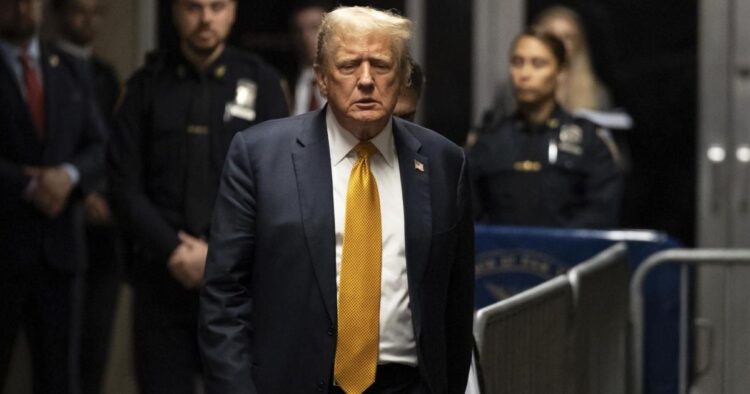The jury in Donald Trump’s criminal hush money trial will continue their discussions on Thursday. They started their work on Wednesday, spending about 4.5 hours deliberating. The jurors asked Judge Juan M. Merchan to replay key testimony from David Pecker, former National Enquirer publisher, and Michael Cohen, Trump’s ex-lawyer.
They also requested to hear the jury instructions again. The judge told the jury they could work until 6 p.m. if they wished, although a typical court day ends at 4:30 p.m.
The case focuses on $130,000 paid to porn star Stormy Daniels to keep quiet about an alleged affair with Trump in 2006. Trump is accused of falsely recording these payments as “legal expenses” to hide their true purpose.
He faces 34 felony counts of falsifying business records. If convicted, he could face up to four years in prison. Trump denies any wrongdoing and has pleaded not guilty. This is the first criminal trial against a former U.S. president and the first of four indictments against Trump to go to trial.
Trump has used the trial to campaign for the upcoming presidential election, criticizing President Joe Biden and rallying his supporters outside the courtroom. Notable figures who have appeared to support Trump include House Speaker Mike Johnson, former GOP candidate Vivek Ramaswamy, and U.S. Senators Rick Scott and JD Vance.
Biden’s campaign also made an appearance outside the trial earlier this week, featuring actor Robert De Niro and two former police officers.
A guilty verdict would be a significant blow to Trump’s presidential campaign, while an acquittal would strengthen his position. If the jury cannot reach a unanimous decision, it could result in a mistrial.
Trump expressed his frustration after the jury instructions were read, calling the trial “very unfair” and saying even Mother Teresa couldn’t win in this situation.
The jury consists of 18 residents of Manhattan, including 12 main jurors and six alternates. The main jury has seven men and five women from diverse backgrounds, such as sales, software engineering, security, teaching, speech therapy, law, investment banking, and wealth management. The names of the jurors are kept confidential.
To convict Trump of falsifying business records, prosecutors must prove beyond a reasonable doubt that he intentionally made false entries in business records to commit or conceal another crime. The jury must reach a unanimous decision for a verdict on each of the 34 felony counts.
Jury deliberations are conducted in secret, and jurors can communicate with the judge through notes if they need legal clarification or want to review parts of the testimony.
The duration of the deliberations is uncertain, as the jury needs to consider each of the 34 counts individually. A verdict might not be reached by the end of the week.
The jury’s deliberations in Donald Trump’s criminal hush money trial are ongoing, with significant political and legal implications at stake. The process is detailed and complex, requiring careful consideration of all the evidence and charges presented.

















Comments